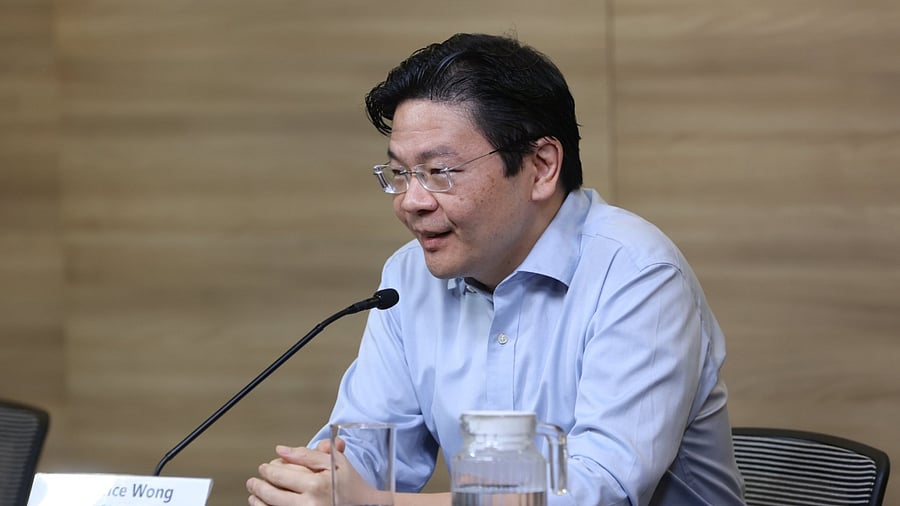
Sikhs in Singapore have distinguished themselves in their chosen professions and made significant contributions in diverse fields while retaining their culture, faith and unique identity, Deputy Prime Minister Lawrence Wong said.
He was addressing the 75th anniversary celebration dinner of the Sikh Advisory Board (SAB) on Sunday.
“You have all distinguished yourselves in your chosen professions and made significant contributions in diverse fields... Crucially, Sikhs have done all this in Singapore while retaining their culture, faith and unique identity,” he told the gathering.
“Whether it is in the civil service or the uniformed services, the judiciary, business, sports, or many other professions, Sikhs are well represented, excelling and taking on leadership positions,” he told the community.
“From the government’s perspective, we certainly appreciate and value this very close collaboration with the community. Compared to other communities you may be small in numbers, but your contributions to Singapore is out of proportion to your numbers,” the minister added.
Lawrence Wong also highlighted the Sikh Advisory Board having been instrumental in advising the state on matters concerning the community, be it religion, customs or overall welfare issues.
The Board, he noted, has always been candid, open and forthcoming in sharing perspectives and views on the issues of concern to the community.
“So, even though you may be an Advisory Board, I assure you the government listens to your advice and takes it very seriously.
"The Board has also been instrumental in mediating disputes as those relating to employment practices to ensure that Sikhs continue to observe the key tenets of their faith,” he underscored.
The deputy prime minister also acknowledged the Sikh Welfare Council’s wide range of services for those in need and the Singapore Sikh Education Foundation facilitating the teaching of Punjabi, which is officially recognised as a second language in Singapore schools together with other minority Indian languages.
Wong reminded the Singaporean community of a sharp rise of racist incidents three years ago at the height of the pandemic in 2020, but assured that the situation has improved and things have stabilised.
“Such incidents are a reminder that the ideal of a multiracial and multireligious Singapore is always a work in progress and there remains scope for us to strengthen racial harmony and social cohesion in our country,” he said of Singapore’s early days of independence witnessing heightened tension among the multi-racial community.
“Working together, I am sure we can continue to find new ways to uplift the Sikh community and, importantly, to forge even closer bonds with other communities in Singapore,” he said.
Knowing from the country’s own painful history of how easily issues like race and religion can be stoked and cause division and strife, Singapore must continue to strengthen racial harmony and social cohesion, he added.
This can be via the creation of more opportunities for shared experiences in Housing Board estates (public housing), neighbourhoods, schools and workplaces, he said.
The first large group of Sikhs to come to Singapore can be traced back to the late 19th century. They were sent by the British colonial government to form a new police contingent. And over the years, more came to Singapore and sank roots here. Over time, the community has grown and flourished. We now have about 13,000 Sikhs fully integrated into our society, the minister concluded.